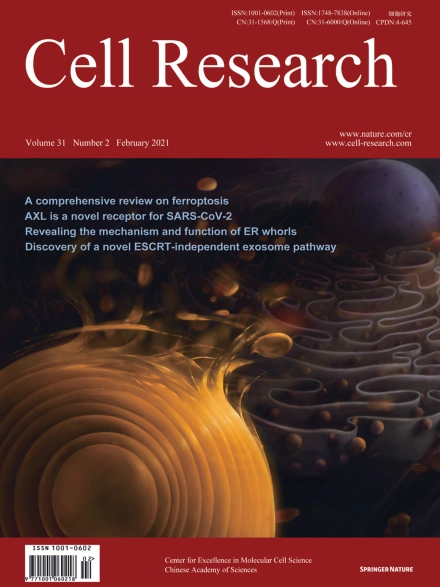
Advanced Search
Submit Manuscript
Advanced Search
Submit Manuscript
Volume 31, No 2, Feb 2021
ISSN: 1001-0602
EISSN: 1748-7838 2018
impact factor 17.848*
(Clarivate Analytics, 2019)
Volume 31 Issue 2, February 2021: 229-232 |
Effective treatment of SARS-CoV-2-infected rhesus macaques by attenuating inflammation
Shuaiyao Lu1,2 , Jingjing Zhao3 , Jiebin Dong3 , Hongqi Liu1 , Yinhua Zhu4,5 , Honggang Li3 , Liping Liu3 , Yun Yang1 , Shicheng Sun3 , Yifan Song3 , Yuan Zhao1 , Ruiping She6 , Tuoping Luo4,5 , Hongkui Deng3,* , Xiaozhong Peng1,2,*
1National Kunming High-level Biosafety Primate Research Center, Institute of Medical Biology, Chinese Academy of Medical Sciences and Peking Union Medical College, Kunming, Yunnan, ChinaDear Editor,
The COVID-19 pandemic caused by the SARS-CoV-2 virus has caused a significant public health crisis worldwide. Recent studies show that excessive inflammatory response is critical for SARS-CoV-2 pathogenesis and COVID-19 severity,1 which can lead to acute lung injury (ALI) and acute respiratory distress syndrome (ARDS).2 One major factor for acute inflammation in SARS-CoV-2 infection is the inflammatory macrophages, which has been considered important for the production of large amounts of proinflammatory cytokines.3 Autopsy identified an intense infiltration of macrophages in the lung tissues of fatal COVID-19 patients.4 Furthermore, single-cell RNA sequencing (scRNA-seq) showed a higher proportion of macrophages presenting in bronchoalveolar lavage fluid (BALF) of severe COVID-19 patients.5 Consistent with studies of SARS-CoV-2, infiltration and accumulation of macrophages in the lung were also found in other coronavirus diseases.6 Depletion of macrophages protected mice from lethal SARS-CoV infection, highlighting the important roles of macrophages in coronavirus-induced symptoms.7 Therefore, targeting macrophages to regulate hyperinflammation in SARS-CoV-2 infection could be an effective strategy to treat COVID-19 patients.
https://doi.org/10.1038/s41422-020-00414-4